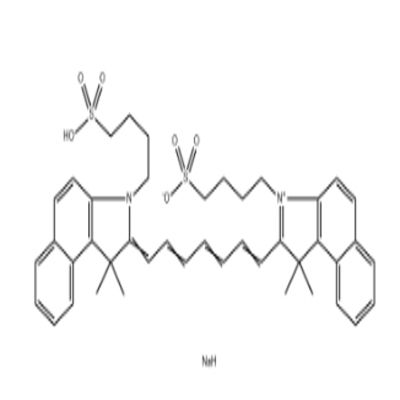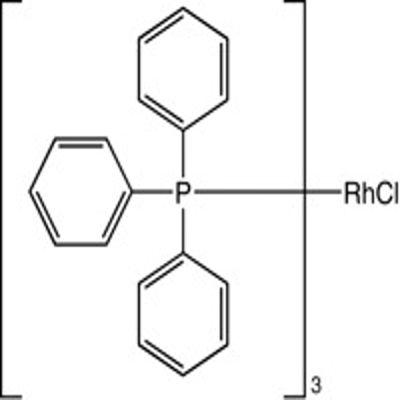Adenosine inhibitors immuno-micro-environmental regulatory drugs for tumors (I) : A2aR antagonists
-
Last Update: 2020-06-15
-
Source: Internet
-
Author: User
Search more information of high quality chemicals, good prices and reliable suppliers, visit
www.echemi.com
TextsIn recent years, with the listing of a large number of immunocheckpoint inhibitors such as PD-1, PD-L1 and CTLA4 monotometrean, awareness of tumor immunotherapy has become more and more adequate, resulting in many tumor patients gaining benefits that were previously unable to be achieved through chemotherapy or targeted therapyHowever, many patients are not able to benefit from immunotherapy if they are poorly responding or resistant to immunocheckpoint inhibitors targeted at PD-(L)1 or CTLA4 pathwaysFor this segment of patients, how to improve their response to immunotherapy is a new challenge; So how do you improve the immune response of the patients involved? Researchers have made a lot of attempts and achieved a lot of results, including the development of a new immunocheckpoint inhibitor, adenosine inhibitor immuno-microenvironment regulation drugs, is one of these resultsAdenosine inhibitory tumor immuno-micro-environmental regulatory drugs are mainly developed on CD39-CD73-A2aR pathwaysIn this pathway, adenosine runs through the entire process and is also responsible for poor immune response stoicismAdenosine is an immunosuppressive metabolite that can inhibit the immune response of immune cells by binding to the G-protein conjugate dadenoreceptor adanosine receptor A2a (A2aR) expressed on immune cells, and the result of this inhibition process in the tumor microenvironment is manifested as the immune escape of tumor cells, so that tumor cells cannot be killed by immune cellsAt the same time, the expression environment of hypoxia, low PH, high cell renewal, high CD39 and CD73 in tumor microenvironment are all important factors in the high level of adenosineCd39 and CD73 are expressed by regulatory Tcells (Treg) as key enzymes for catalyzing adenosine, which can be used to coercally hydrolysis tissues produced by adenosine triphosphate, ATP, etc., and then raise the level of adenosine in the tumor microenvironment, and ultimately enhance the immuno-escape of tumor cells caused by the above pathwaysIt is not difficult to find that there are three targets in the CD39-CD73-A2aR pathway that inhibit tumor cells from obtaining immune escape, while increasing the immune response of patients when immunocheckpoint inhibitors using the PD-(L) 1 or CTLA4 monogenic pathways(1) direct suppression of adenosine and immunocellular expression of a2aR combination, which is the most direct strategy; (2) inhibit the role of CD39, and thus inhibit the production of adenosine, which is the most fundamental strategy; All three targets are to achieve the killing of tumor cells by inhibiting the physiological function of adenosine in the tumor immune microenvironmentBased on these three targets, the researchers developed A2aR antagonists, CD39 inhibitors, and CD73 inhibitorsThis article only describes A2aR antagonists, CD39 inhibitors and CD73 inhibitors can be found in follow-up articlesThe in vitro activity of A2aR antagonists has been shown in preclinical studies, and A2aR antagonists can exhibit good antitumor activity either in combination with other immunotherapy drugsOn the basis of this study, A2aR antagonists have AZD4635, CPI-444, AB928, PBF-509, CS3005, SHR5126, etcin the clinical stage or clinical application stage, AZD4635 was developed by AstraZeneca and currently has prostate cancer and NSCLC and other indications into Phase II clinical, its clinical use strategy includes single drug, with PD-L1 monoantiphoresis, and CD73 monotonica At present, the NCT02740985 trial of AZD4635 has published data The study was for patients with solid tumors and the drug regimen included AZD4635 monodrug or combination Durvalumab (PD-L1 monotonica) use A total of 38 patients with advanced solid tumors were included in the study, of whom 15 were treated with AZD4635 and the rest were treated with AZD4635 combined Durvalumab The study found that the maximum tolerable dose of AZD4635, MTD, was 100 mg qd in single-drug therapy and combination drug The common adverse events associated with the study drug (defined as the incidence of 15%) are 1-2 levels of nausea, fatigue, vomiting, and dizziness In the eight metastatic deified deified prostate cancer (mCRPC) patients whose tumor lesions could be assessed according to RECIST, one case of single drug treatment with AZD4635 reached partial remission (PR), while one patient in combination drug therapy was completely remission (CR) and one case of partial remission (PR) In addition, one of the four patients who were unable to assess their tumor lesions observed a long-lasting PSA reduction of up to 99% in AZD4635 monodrug therapy (PSA, prostate-specific antigen, a marker for prostate cancer tumors) In other patients with head and neck cancer, bladder cancer, stomach cancer and sarcoma, patients who had been treated for more than 6 months achieved disease stabilization (SD) Table 1 AZD4635 related clinical trials, CPI-444 developed by Corvus and Roche, currently NSCLC indications into Phase II clinical indications nSCLC, its clinical use strategy includes single drug, with PD-L1 monoanti-nephdre, with CD73 mono-anti-combination, and CD38 mono-resistance combination The latest clinical advances on CPI-444 were published in Cancer Discovery in January 2020 This article mainly analyzed 68 patients with renal cell carcinoma included in the NCT02655822 study, of which 33 patients were treated with CPI-444 monodrug, while the remaining 35 patients received CPI-444 combined Atezolizumab (PD-L1 monoantine) treatment for 5 (1-21.7) months All patients were treated with tyrosine kinase inhibitors or PD-(L)1 antibodies prior to entering the study and progressed, and more than 72% of patients were resistant or refractive to PD-(L) 1 antibodies The results showed that one patient with CPI-444 single drug treatment had A PATIENT's PR, 17% of patients reached SD and lasted at least 6 months, and the median PFS was 4.1 months; In addition, Corvus released the latest data on the treatment of CPI-444 mCRPC at the 2020 ASCO GU Conference The report reported 35 mCRPC patients, 11 of whom were treated with CPI-444, while the remaining 24 patients received CPI-444 combined Atezolizumab (PD-L1 monotonica), and 43 percent of patients had internal metastasis at baseline In the median follow-up time of more than 3.2 months, one patient, PR (the patient's PSA dropped from 98 to less than 1), seven patients with SD spent more than 6 months, and five patients who still did not reach SD Table 2 CPI-444-related clinical trials, AB928 was first developed by Arcus Bioscience At present, the clinical indications entering Phase II are rectal cancer and NSCLC, and its clinical use strategies include combined PD-1 monoab, combined mFOLFOX6 chemotherapy, combined polyethyl glycol lipid amycin chemotherapy, etc According to data released by Arcus at the 2019 ASCO conference, a total of nine patients were included in AB928 combined polyethyl glycol amycin, AB928 combined with mFOLFOX6 chemotherapy and AB928 combined Zimberelimab (PD-1 monotag) Overall, patients were tolerant of AB928's combination therapy, and as of the time the data were reported, only two subjects had an imaging evaluation to show their SD Table 3 AB928 related clinical trials, PBF-509 developed by Novartis, currently enter phase II clinical indications have NSCLC, clinical research strategy for joint PD-1 monotophox Table 4 PBF-509-related clinical trials, CS3005, developed by Keystone Pharmaceuticals, are currently conducting an exhibition of clinical trials in Australia to assess the safety, tolerance, pharmacokinetics and initial anti-tumor activity of CS3005 in patients with advanced solid tumors Table 5 CS3005 Related Clinical Trials, SHR5126 Developed by Hengrui Pharmaceuticals, was approved by CDE in February 2020 to issue a notice of clinical trials for the treatment of patients with solid tumors In addition, in the domestic, Baiji Shenzhou, re-polar medicine has also developed A2aR antagonists, have relevant patents open It is not difficult to find that the current research on A2aR antagonists is still in a relatively preliminary stage, in the research enterprises to use it is also more with its own PD-(L) 1 monotonica, CD73 monotonica and CD39 monotonica, as a supplement to autoimmune checkpoint inhibitors As far as it stands, the development of A2aR antagonists has the following advantages: (1) the current market competition in the field is small, which also means greater opportunities; Enterprises with related products can develop A2aR antagonists as a useful supplement to existing products, but no PD-(L) 1 monotag and other products of enterprises in the external also have a broad space for cooperation Title: New Immunocheckpoint Inhibitor - Adenosine Inhibitory Tumor Immuno-Micro-Environmental Regulatory Drug (I): A2aR Antagonic
This article is an English version of an article which is originally in the Chinese language on echemi.com and is provided for information purposes only.
This website makes no representation or warranty of any kind, either expressed or implied, as to the accuracy, completeness ownership or reliability of
the article or any translations thereof. If you have any concerns or complaints relating to the article, please send an email, providing a detailed
description of the concern or complaint, to
service@echemi.com. A staff member will contact you within 5 working days. Once verified, infringing content
will be removed immediately.







